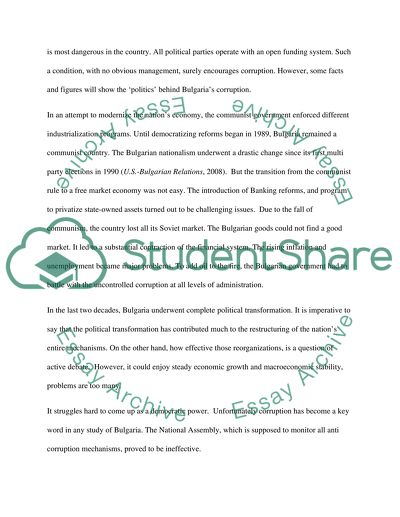Cite this document
(“Political Corruption in Bulgaria after 1989 Essay”, n.d.)
Retrieved from https://studentshare.org/politics/1527897-political-corruption-in-bulgaria-after-1989
Retrieved from https://studentshare.org/politics/1527897-political-corruption-in-bulgaria-after-1989
(Political Corruption in Bulgaria After 1989 Essay)
https://studentshare.org/politics/1527897-political-corruption-in-bulgaria-after-1989.
https://studentshare.org/politics/1527897-political-corruption-in-bulgaria-after-1989.
“Political Corruption in Bulgaria After 1989 Essay”, n.d. https://studentshare.org/politics/1527897-political-corruption-in-bulgaria-after-1989.


